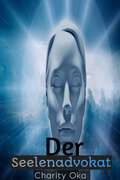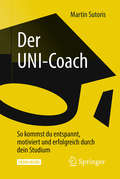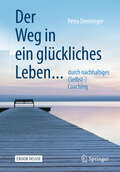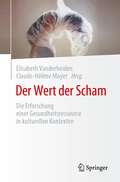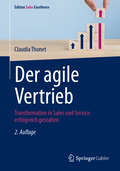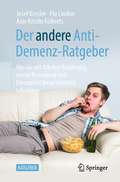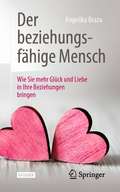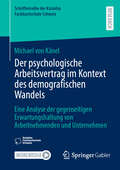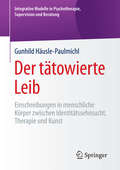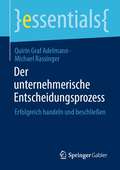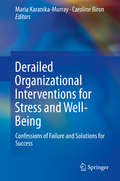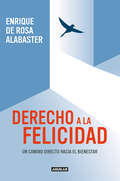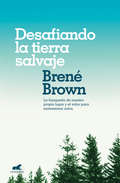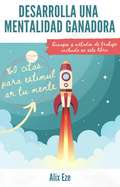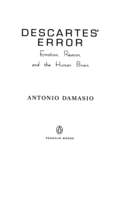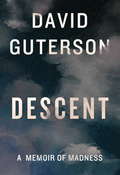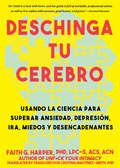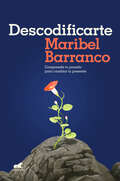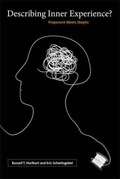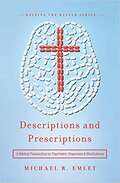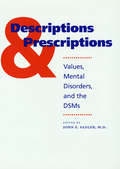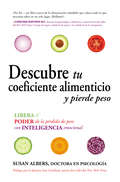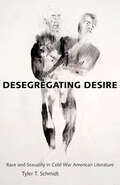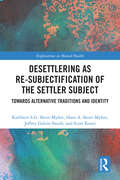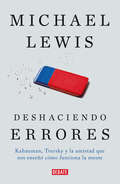- Table View
- List View
Der Seelenadvokat
by Charity OkaWir leben im Allgemeinen in einer Welt, die auf Grenzen ausgerichtet ist, und wir sind dazu erzogen worden, diese Grenzen hoch zu achten und sie sorgfältig zu schätzen und zu berücksichtigen, weil wir glauben, dass sie ideal sind und bessere Beziehungen und tiefere Verbindungen zwischen uns schaffen. Diese Grenzziehung erstreckt sich auch auf Kulturen, Religionen und Familien. Unsere Kulturen und Familien setzen diese Grenzen ausdrücklich fest und hindern die Menschen daran, zu handeln und eigene Grenzen, Überzeugungen ,,,,, und Meinungen zu haben. Und wenn die Gesellschaft und die Eltern ihre Grenzen setzen, erwarten sie von uns, dass wir sie nicht überschreiten, aber unsere individuellen Grenzen werden oft gegen uns zurückgedrängt, damit die Kontrolle der Welt bestehen bleibt. Wenn wir jeden Tag von etwas umgeben sind, gewöhnen wir uns so sehr daran, dass wir es gar nicht mehr hinterfragen. Nur um dann festzustellen, dass die Grenzen nicht das sind, was sie uns vorgaukeln; vielmehr sind sie ein Bündel ungesunder Kontrolle, um uns am Zugang zur Wahrheit zu hindern. Das Festhalten an dieser kalkulierten Täuschung hat uns lange Zeit aus dem Bewusstsein herausgehalten, aber jetzt, wo wir beginnen, intuitive Eingebungen zu haben und die Systeme der Welt zu bewerten, findet eine Bewusstseinsveränderung statt. Die Angst, die uns eingeflößt wird, um in einem illusorischen Gefängnis zu bleiben, beginnt allmählich ihre Macht über uns zu verlieren. Diese Erkenntnis und das jüngste Erwachen, die Bemühungen der Gesellschaft, uns mit Angst und Schuldgefühlen zu managen, das hochqualifizierte Gaslighting und die massenhafte Manipulation der Menschheit unter dem Deckmantel der Grenzen, haben uns eine außerordentliche Freiheit gegeben, das zu tun, was sich richtig anfühlt. Es ist an der Zeit, die Dinge zu verlernen, die für uns nicht mehr nützlich sind, und unsere Wahrheit anzunehmen.
Der UNI-Coach: So kommst du entspannt, motiviert und erfolgreich durch dein Studium
by Martin SutorisVorlesungspläne, Studium in Rekordzeit, Praktikum in den Ferien, am besten noch ein Auslandsaufenthalt … und dann sind da noch der Nebenjob, die Freunde, Hobbys usw. Angesichts dieser Fülle an Herausforderungen ist es nicht leicht, entspannt und motiviert zum erfolgreichen Abschluss zu gelangen. Dieser Ratgeber stellt effektive Entspannungsmethoden, Motivationstechniken und Übungen vor, die einfach in den Studienalltag zu integrieren sind und beispielsweise in folgenden typischen Unisituationen schnell Abhilfe schaffen können:- Prüfungsangst- Nervosität in Referaten- Konzentrationsprobleme- Allgemeine Überforderung- Motivationsdurchhänger Wer diesen UNI-Coach liest, kommt garantiert entspannt und motiviert zum Erfolg!
Der Weg in ein glückliches Leben ...: ... durch nachhaltiges (Selbst-) Coaching
by Petra DenningerSei dein eigener Coach – du hast es selbst in der Hand glücklich zu sein! Wo stehe ich aktuell und was will ich ändern und wie? Mit diversen Tools und Werkzeugen hilft Ihnen dieses Buch dabei, Ihre innersten Wünsche und Ziele herauszufinden. Es ist eine Art Selbstcoaching zur Förderung der persönlichen und beruflichen Entwicklung: Viele Tipps aus der Praxis und Hilfestellungen erleichtern Ihnen den Einstieg und laden ein, sofort zu beginnenEs führt Sie fundiert und leicht verständlich durch zentrale Fragen und bietet Ihnen die Möglichkeit, Ihre Situation zu reflektieren um Klarheit über sich selbst zu gewinnenFragebögen und zahlreiche Beispiele aus der Praxis helfen Ihnen dabei, das Gelesene praktisch umzusetzenEs öffnet Ihnen die Augen, um ungesunde Denkmuster wie fehlende Selbstliebe, Angst vor Entscheidungen und Resignation sowie schädliche Gewohnheiten zu erkennenDazu zeigt es Ihnen Schritt für Schritt unterschiedliche Tools, die ihnen helfen, Ihre Wünsche umzusetzen Dieses Buch möchte jeden Einzelnen darin unterstützen, das Leben so zu gestalten, um den passenden eigenen Weg zu finden. Es eignet sich für alle, die sich weiterentwickeln und unter Anleitung mutig und zuversichtlicher werden möchten.
Der Wert der Scham: Die Erforschung einer Gesundheitsressource in kulturellen Kontexten
by Elisabeth Vanderheiden Claude-Hélène MayerDieser Band kombiniert empirisch-wissenschaftliche und theoretische Perspektiven auf Scham in kulturellen Kontexten und aus soziokulturell unterschiedlichen Perspektiven. Es bietet neue Einsichten und eine umfassendere kulturelle Basis für die zeitgenössische Forschung und Praxis im Kontext von Scham. Das Buch untersucht Scham aus der Perspektive der Positiven Psychologie, aus dem Blickwinkel der Definition des Konzepts als psychologisches und kulturelles Konstrukt und im Hinblick auf praktische Perspektiven in verschiedenen Kulturen.Der Band bietet eine solide Grundlage für Forscher:innen und Praktiker:innen, neue Modelle, Therapien und Beratungspraktiken zu entwickeln, um Scham neu zu definieren und so zu gestalten, dass sie zu Stärke, Resilienz und Stärkung des Individuums führt.
Der agile Vertrieb: Transformation in Sales und Service erfolgreich gestalten (Edition Sales Excellence)
by Claudia ThonetAgile Prinzipien und Frameworks wurden zwar für die Entwicklung komplexer Produkte geschaffen, doch sie lassen sich auch im Vertrieb gewinnbringend nutzen. Mit diesem Buch erhalten Geschäftsführer, Vertriebsleiter, Führungskräfte, Berater und Mitarbeiter aus Service und Vertrieb praxistaugliche Methoden, mit deren Hilfe sie ihren Vertrieb als Brücke zum Kunden beweglich und lösungsorientiert gestalten können. Denn nur durch flexible, schnelle und innovative Sales- und Servicebereiche lassen sich wechselfreudige Kunden halten und junge „Digital Natives“ gewinnen. Anhand zahlreicher Praxisbeispiele zeigt die Autorin, wie und wo Sie agile Methoden wie Scrum, Kanban, Design Thinking, Shopfloor, OKRs und viele mehr erfolgreich einsetzen. Mit konkreten Anleitungen und hilfreichen Tipps für eine nachhaltige Leistungssteigerung in Sales und Service und ein Umdenken im Sinne des Kunden. Die 2. Auflage wurde aktualisiert und unter anderen um Beiträge zu den Themen Agiler Sales-Prozess, themenzentrierte Einwand-Integration, OKR-Zyklus und Sales Board ergänzt.
Der andere Anti-Demenz-Ratgeber: Wie Sie mit falscher Ernährung, wenig Bewegung und Einsamkeit Ihren Verstand schädigen
by Josef Kessler Pia Linden Ann-Kristin FolkertsDer etwas andere Ratgeber zur Vorbeugung von Demenzerkrankungen packt uns bei unseren Schwächen und provoziert: Wir erfahren, was wir tun können, um unseren Weg zu einer Demenz zu beschleunigen. Wir können sogar wählen, ob wir den neurodegenerativen oder den vaskulären Weg bevorzugen. Für alle, die es satt haben, auf ihren kognitiven Verfall im Alter nur passiv zu warten: Wie wir mit Eigeninitiative und Selbstständigkeit den zügigen Abbau unseres Gedächtnisses fördern. Die Autoren geben Tipps und Anregungen aus den Bereichen Altern, Ernährung, Bewegung, Bildung, Sozialkontakte, Sinnesorgane, Alkohol, Drogen und Lifestyle.
Der beziehungsfähige Mensch: Wie Sie mehr Glück und Liebe in Ihre Beziehungen bringen
by Angelika BrazaWir wollen lieben und geliebt werden. Viele Paare investieren daher viel in ihre Beziehungen, nicht nur in der Zeit des Kennenlernens. Trotz tiefgreifender Veränderungen in der Gestaltung von Paarbeziehungen sind auch heute in jedem Menschen Sehnsüchte nach wärmenden Partnerschaften und bedingungslosem Aufgehobenen wirksam. Partnerschaften können das Beste aus uns herausholen, aber uns auch sehr leicht dazu bringen, uns so merkwürdig zu verhalten, wie sonst nirgends.Dieser Ratgeber erklärt, warum glückliche Beziehungen kein Zufall sind. Er gibt Paaren Orientierung und Halt bei der Frage, wie sie ihre Beziehungsfähigkeit stärken, wie Konflikte in Beziehungen bewältigt und neue positive Gefühle erlebt werden können, wenn die Partner in echten Kontakt zu einander und zu sich selbst, und in Verbindung zu den tiefsten Gefühlen, Bedürfnissen und Wünschen des Anderen kommen. Dieses Buch zeigt was es heute bedeutet, in Partnerschaft zu sein, wenn Treue und Freiheit neu verhandelt werden oder wenn die Partner an emotionale Grenzen stoßen, und es vermittelt praktische Hilfen für die Bewältigung von Partnerschafts- und Beziehungsproblemen.Für all diejenigen, die starke Beziehungen wollen, die nicht nur für bestimmte Lebensphasen lebendig sind, sondern auch bleiben.
Der psychologische Arbeitsvertrag im Kontext des demografischen Wandels: Eine Analyse der gegenseitigen Erwartungshaltung von Arbeitnehmenden und Unternehmen (Schriftenreihe der Kalaidos Fachhochschule Schweiz)
by Michael von KänelIn diesem Buch wird der psychologische Arbeitsvertrag, eine auf sozialem Austausch basierende Beziehung zwischen Arbeitnehmenden und Unternehmen, untersucht. Ziel ist es, die Erwartungen von Schweizer Arbeitnehmenden zu erfassen und in Bezug auf die Unternehmensbindung unter Berücksichtigung von Generations-, Alters- und Lebensphaseneffekten zu bewerten. Die Vorgehensweise sah eine umfassende Literaturrecherche zu den Merkmalen des psychologischen Vertrages sowie Einflüssen auf die Erwartungshaltung in Arbeitsbeziehungen vor. Mit einer quantitativen Befragung von Schweizer Arbeitnehmenden (N=491) zur Zufriedenheit und emotionalen Bindung konnten die Inhalte des psychologischen Vertrages nach demografischen Faktoren untersucht und bewertet werden. Durch eine quantitative Expertenbefragung konnten die erhobenen Daten validiert und die gewonnenen Erkenntnisse durch brachen- und berufsspezifische Unterschiede sowie Erklärungsmuster ergänzt werden. Damit können Unternehmen ihren Fokus für Bindungsmaßnahmen stärken und konzentriert an jenen Stellen Veränderungen vornehmen, welche ein hohes Erfolgspotential durch die Erhöhung der emotionalen Bindung aufweisen.
Der tätowierte Leib: Einschreibungen in menschliche Körper zwischen Identitätssehnsucht, Therapie und Kunst (Integrative Modelle in Psychotherapie, Supervision und Beratung)
by Gunhild Häusle-PaulmichlDas Buch beschäftigt sich mit den Phänomenen der Tätowierungen am menschlichen Körper, welche im Sinnzusammenhang der transversalen Identitätsthematik und einer integrativtherapeutischen Perspektive auf Körperphänomene stehen. Die Tätigkeit des Tätowierens sowie das Tätowiert-Sein ist Kunst und wird im foucaultschen Sinne zu Lebenskunst. Tätowiertrends folgen neben künstlerischen auch marktwirtschaftlichen Interessen, eine Verkennung von Selbstwahrnehmungsprozessen kann die Folge sein. Exklusions- und Inklusionsprozesse weisen auf die Stellung der Tattooeigner/innen innerhalb sozialer Gemeinschaften hin. Verschiedene Perspektiven des Phänomens der Tätowierung werden beleuchtet und der Zusammenhang zur Praxis und Theorie der Integrativen Therapie hergestellt.
Der unternehmerische Entscheidungsprozess: Erfolgreich handeln und beschließen (essentials)
by Michael Rassinger Quirin Graf AdelmannDer Entscheidungsprozess in Unternehmen folgt simplen Regeln, stellt für viele Unternehmer und leitende Angestellte aber oft eine große Herausforderung dar. Entscheidungen werden aufgeschoben oder gar nicht erst getroffen, weil die Entscheider wegen möglicher Konsequenzen zögern, um ihr Unternehmen oder ihren Arbeitsplatz fürchten oder Angst vor einer eindeutigen Ja/Nein-Entscheidung haben. Dieses Buch beleuchtet unternehmerische Entscheidungen unter zahlreichen Aspekten und mit vielen Praxisbeispielen. Zugleich geht es auf den psychologischen Hintergrund ein und gibt Tipps, wie unternehmerisch tätige Menschen Entscheidungen fundiert und positiv treffen können.
Derailed Organizational Interventions for Stress and Well-Being
by Maria Karanika-Murray Caroline BironProviding an overview of researchers' and practitioners' "confessions" on the fascinating phenomenon of failed or derailed organizational health and well-being interventions and contextualizing these confessions is the aim of this innovative volume. Organizational intervention failures, paradoxes and unexpected consequences can offer a lot of rich and extremely useful practical lessons on intervention design and implementation and possibly on the design of future research on organizational interventions. This volume presents lessons learned from derailed interventions and provides possible solutions to those tasked with implementing interventions. It provides an open, practical and solutions-focused account of researchers' and practitioners' experiences in implementing organizational interventions for health and well-being.
Derecho a la felicidad: Un camino directo hacia el bienestar
by Enrique De Rosa AlabasterLa felicidad, el bienestar, es lo que buscamos a lo largo de nuestra vida. A veces parece imposible, pero está más cerca de lo que pensamos. Este libro es el inicio de ese camino. ¿Qué es la felicidad? ¿Por qué en vez de ir derecho hacia ella desviamos siempre nuestro camino? ¿De dónde provienen las preguntas fundamentales de la existencia? ¿Somos capaces de aprender lo que la vida tiene para enseñarnos? ¿Cómo encontramos la salida del laberinto? ¿Por qué creemos que siempre tendremos tiempo para todo? ¿Por qué pensamos que está mal estar mal? Con casi cuarenta años de experiencia, Enrique De Rosa Alabaster reflexiona sobre la idea de la felicidad -comúnmente considerada algo frívolo o poco importante- de manera profunda, didáctica y conmovedora, recurriendo a ejemplos de la literatura, el derecho, los mitos griegos, la psiquiatría y la filosofía. Como si fuera la bitácora de un barco que usan los marinos para llegar al faro, este libro se propone buscar las señales adecuadas que nos llevarán derecho a la felicidad.
Desafiando la tierra salvaje: La verdadera pertenencia y el valor para ser uno mismo
by Brene BrownBrené Brown está revolucionando la forma de entender la vulnerabilidad, la empatía y la pertenencia. De la autora de Sé valiente, el documental de Netflix. La actual crisis de desconexión nos obliga a plantearnos la pertenencia a nuestra comunidad, empresa, cultura. La verdadera pertenencia no nos pide que cambiemos; nos exige que seamos quienes somos. Brené Brown, famosa por profundizar en las experiencias que dan sentido a la vida, como el coraje, la vulnerabilidad, el amor, la vergüenza y la empatía, se adentra ahora en el debate sobre la pertenencia. En Desafiando la tierra salvaje, Brown redefine el concepto «pertenecer» en una era marcada por la complacencia, el individualismo y el aislamiento ideológico. La autora da un giro al discurso cultural establecido y abre un nuevo camino hacia lo que significa ser parte de algo. Un libro oportuno y necesario que desafía lo que pensamos sobre nosotros mismos y nuestra forma de relacionarnos con los demás.
Desarrolla una mentalidad ganadora: 60 citas para estimular tu mente
by Alix EzeEsta obra pretende ante todo ser divertida, informativa y motivadora. Como un compendio, este pequeño libro contiene citas de personas famosas y empresarios exitosos para ser leídas diariamente con el fin de mantenerse motivado y proactivo. El hecho de que se le consulte con la mayor frecuencia posible varias veces al día, te permite mantenerte centrado en tus objetivos y alimentar el pensamiento positivo. Consúltalo durante tus fases de pérdida de motivación para reanimarte y volver a ponerte en modo conquistador. La caja de herramientas al final del libro te ayudará a alcanzar tus objetivos y a planificar tus tareas.
Descartes' Error: Emotion, Reason, and the Human Brain (Drakontos Ser.)
by Anthony DamasioSince Descartes famously proclaimed, "I think, therefore I am," science has often overlooked emotions as the source of a person's true being. Even modern neuroscience has tended, until recently, to concentrate on the cognitive aspects of brain function, disregarding emotions. This attitude began to change with the publication of Descartes' Error in 1995. Antonio Damasio--"one of the world's leading neurologists" (The New York Times)--challenged traditional ideas about the connection between emotions and rationality. In this wondrously engaging book, Damasio takes the reader on a journey of scientific discovery through a series of case studies, demonstrating what many of us have long suspected: emotions are not a luxury, they are essential to rational thinking and to normal social behavior.
Descent
by David GutersonFrom the best-selling author of Snow Falling on Cedars: a poignant, searching memoir about one man's fall into depression in the wake of a national tragedy, and his brave struggle to return to normalcy. Like most of the country and the world, David Guterson woke up on Tuesday, September 11th, 2001, not thinking history was about to change. He was in Washington, D.C., with a group of fellow writers, evaluating grant applications for the National Endowment of the Arts. But before their work day had even begun, the Pentagon was bombed; the Twin Towers were down in New York City; and havoc was wreaked irrevocably on our collective sense of happiness, security, and national pride. Scrambling to get out of the city and back home any way he could, David, along with two fellow writers, rented a car and drove 2,600 miles across the country to Seattle. But the attacks triggered something inside him, a pervasive feeling of hopelessness, fear, despair--a clinical depression that that would not go away. He lost interest in his work, family, friends--his life. Inspired by William Styron's masterful Darkness Visible, Guterson's Descent is the searing account of one man's envelopment by the darkest of human emotions, and his tunneling out. Powerful, intense, and deeply felt, it is at once personal and universally illuminating--a confession from a great literary mind who takes us on a journey of what it feels like, and means, to lose one's grasp on the world--and to find it once more, even if by fumbling in the dark.
Deschinga Tu Cerebro: Usando La Ciencia Para Superar Ansiedad, Depresión, Ira, Miedos Y Descadenantes
by Faith G. Harper, PhD, LPC-S, ACS, ACNNuestros cerebros están haciendo todo lo posible para ayudarnos, pero a veces pueden ser verdaderos imbéciles. A veces parece que tu propio cerebro está tratando de atraparte, alterándose en frente de todo el público, buscando pleito con tu pareja, volviéndote adicto a algo o congelándose por completo en los peores momentos posibles. Ya le dijiste a tu cerebro que en serio no es bueno hacer este tipo de cosas. Pero tu cerebro tiene una mente propia. Ahí es donde este libro llega a ser útil. Con humor, paciencia y muchas palabrotas, Dr. Faith te muestra la ciencia detrás de lo que está sucediendo en tu cráneo y te explica a través del proceso cómo reentrenar tu cerebro para responder adecuadamente a las cosas que no son de emergencia en la vida cotidiana. Si estás trabajando para lidiar con viejos traumas, depresión, ansiedad, enojo, dolor o adicción, o si solo quieres tener una respuesta más calmada y relajada a las situaciones que enfrentas todo el tiempo, este libro puede ayudarte a poner las piezas del rompecabezas juntas y recuperar tu vida y tu cerebro.
Descodificarte: Comprende tu pasado para cambiar tu presente
by Maribel BarrancoLibérate de las emociones que te condicionan y enferman, y toma las riendas de tu vida a través de la descodificación biológica. Sabemos que nuestras emociones tienen la capacidad de hacernos sentir plenos o infelices. Incluso podemos aprender a gestionarlas mediante la meditación o el mindfulness. Pero ¿qué ocurre cuando sentimos emociones que no reconocemos como nuestras, sentimientos negativos que nos dirigen, nos hacen desdichados y de los que no logramos liberarnos? En este libro encontrarás las claves del porqué de nuestras emociones. Aprenderás a reconocer de dónde vienen, qué nos quieren decir a través de los síntomas que se manifiestan en el cuerpo o en un determinado comportamiento y cómo nuestro inconsciente biológico pone en marcha todos los mecanismos de defensa con una única finalidad: la supervivencia.
Describing Inner Experience? Proponent Meets Skeptic
by Russell T. Hurlburt Eric SchwitzgebelThe authors disagree on an answer. Hurlburt argues that improved methods of introspective reporting make these accurate accounts possible, while Schwitzgebel believes that any introspection is prone to error.
Descriptions and Prescriptions: A Biblical Perspective on Psychiatric Diagnoses and Medications
by Michael R. EmletOCD, ADHD, PTSD, Bipolar Disorder . . . these are no longer just technical terms and medical diagnoses, they are part of our common vocabulary and culture. As Christians, we shouldn't isolate ourselves from this discussion or dismiss these important issues. But we also should be careful not to accept the entire secular psychiatric diagnostic and treatment enterprise without question. What we need is a balanced, biblically (and scientifically) informed approach that neither blindly accepts nor harshly dismisses psychiatric labels, diagnoses, and medicines that are prescribed to help those who are suffering. <P><P> As both a Biblical counselor and medical doctor, Michael R. Emlet, MD, gives readers a Christ-centered approach to psychiatry and guides both lay and professional helpers through the thicket of mental health labels and treatments with a biblical lens. In a clear and thoughtful way that puts the person experiencing mental health issues at the forefront, Emlet uses Scripture to show how the Bible engages in the discussion of psychiatric labels and the medications that are often recommended based on those labels. The first book in the Helping the Helper series, Descriptions and Prescriptions will give readers a biblical, gospel-formed perspective to help them understand and minister to those struggling with mental health issues.
Descriptions and Prescriptions: Values, Mental Disorders, and the DSMs
by John Z. SadlerMost everyone agrees that having pneumonia or a broken leg is always a bad thing, but not everyone agrees that sadness, grief, anxiety, or even hallucinations are always bad things. This fundamental disjunction in how disease and disorders are valued is the basis for the considerations in Descriptions and Prescriptions.In this book John Z. Sadler, M.D., brings together a distinguished group of contributors to examine how psychiatric diagnostic classifications are influenced by the values held by mental health professionals and the society in which they practice. The aim of the book, according to Sadler, is "to involve psychiatrists, psychologists, philosophers, and scholars in related fields in an intimate exchange about the role of values in shaping past and future classifications of mental disorders." Contributors: George J. Agich, Ph.D., Cleveland Clinic Foundation; Carol Berkenkotter, Ph.D., Michigan Technological University; Lee Anna Clark, Ph.D., University of Iowa; K.W.M. Fulford, D.Phil., F.R.C.Psych., University of Warwick, Coventry; Irving I. Gottesman, Ph.D., University of Virginia; Laura Lee Hall, Ph.D.; Cathy Leaker, Ph.D., Empire State College; Chris Mace, M.D., M.R.C.Psych., University of Warwick, Coventry; Laurie McQueen, M.S.S.W., American Psychiatric Association, Washington, D.C.; Christian Perring, Ph.D., Dowling College; James Phillips, M.D., Yale University School of Medicine; Harold Alan Pincus, M.D., University of Pittsburgh School of Medicine; Jennifer H. Radden, D.Phil., University of Massachusetts; Doris J. Ravotas, M.A., L.L.P., Michigan Technological University; Patricia A. Ross, Ph.D., University of Minnesota; Kenneth F. Schaffner, M.D., Ph.D., George Washington University; Michael Alan Schwartz, M.D., Case Western Reserve University; Daniel W. Shuman, J.D., Southern Methodist University; Allyson Skene, Ph.D., York University; Jerome C. Wakefield, D.S.W., Rutgers University; Thomas A. Widiger, Ph.D., University of Kentucky; Osborne P. Wiggins, Ph.D., University of Louisville.
Descubre tu coeficiente alimenticio y pierde peso: Libera el poder de la perdida de peso co
by Susan AlbersSusan Albers, doctora en psicología presenta un programa de tres pasos innovadores para conquistar el impulso del comer emocional– un enfoque práctico, prescriptivo, proactivo utilizando la inteligencia emocional que te ayudará a bajar de peso, comer saludablemente, con atención plena, y no agregar más kilos. Este libro va más allá de dietas tradicionales para explorar la relación entre las emociones y la alimentación, que revelan cómo, cuando aumentas tu inteligencia emocional, aumenta naturalmente tu capacidad para gestionar con éxito su peso. Al explicar el vínculo entre un alto coeficiente y una buena relación con la comida, la psicóloga clínica doctora Albers te guía a través de las barreras emocionales más comunes a la alimentación saludable y consciente, y ofrece 25 herramientas y técnicas que puede utilizar para adaptar el plan a sus necesidades individuales. Basado en docenas de estudios clínicos que asocian una baja inteligencia emocional con los malos hábitos alimenticios, incluyendo comer después de estar lleno, comer sus cosas favoritas cuando está enojado o aburrido, y comer en exceso alimentos. Este libro ofrece esperanza y ayuda que funciona para cualquier persona, no importa cuántas veces han tratado de manejar el comer emocional en el pasado.
Desegregating Desire: Race and Sexuality in Cold War American Literature
by Tyler T. SchmidtA study of race and sexuality and their interdependencies in American literature from 1945 to 1955, Desegregating Desire examines the varied strategies used by eight American poets and novelists to integrate sexuality into their respective depictions of desegregated places and emergent identities in the aftermath of World War II. Focusing on both progressive and conventional forms of cross-race writing and interracial intimacy, the book is organized around four pairs of writers. Chapter one examines reimagined domestic places, and the ambivalent desires that define them, in the southern writing of Elizabeth Bishop and Zora Neale Hurston. The second chapter; focused on poets Gwendolyn Brooks and Edwin Denby, analyzes their representations of the postwar American city, representations which often transpose private desires into a public imaginary. Chapter three explores how insular racial communities in the novels of Ann Petry and William Demby were related to non-normative sexualities emerging in the early Cold War. The final chapter, focused on damaged desires, considers the ways that novelists Jo Sinclair and Carl Offord, relocate the public traumas of desegregation with the private spheres of homes and psyches. Aligning close textual readings with the segregated histories and interracial artistic circles that informed these Cold War writers, this book defines desegregation as both a racial and sexual phenomenon, one both public and private. In analyzing more intimate spaces of desegregation shaped by regional, familial, and psychological upheavals after World War II, Tyler T. Schmidt argues that “queer” desire—understood as same-sex and interracial desire—redirected American writing and helped shape the Cold War era’s integrationist politics.
Desettlering as Re-subjectification of the Settler Subject: Towards Alternative Traditions and Identity (Explorations in Mental Health)
by Hans A. Skott-Myhre Kathleen S.G. Skott-Myhre Jeffrey Galvin Smith Scott KouriThis book offers an intervention into the process of decolonization through the re-subjectification of the settler subject. The authors draw on what Deleuze and Guattari call minor threads of philosophy, pedagogy, spirituality, and healing practices rooted in neglected lineages of European thought and ceremony. The book proposes a methodology for unontologizing the settler subject, which they term "desettlering." Rather than fetishizing indigenous theory and practice as a mode for resubjectifying settlers to facilitate land-based decolonization, it offers a fresh approach by looking toward alternative sets of traditions and identities. These alternatives are used to interrogate minoritarian European philosophies, practices, and beliefs, which the authors propose could be deployed to unontologize the settler within current historical conditions. Asserting that such a process is not volitional but a historical necessity, the book offers a novel and timely investigation into who settlers become if they intend to engage seriously in decolonization. It will appeal to an interdisciplinary audience of scholars and researchers in psychological science, social psychology, counseling, philosophy, indigenous studies, and sociology.
Deshaciendo errores: Kahneman, Tversky y la amistad que nos enseñó cómo funciona la mente
by Michael LewisMichael Lewis examina en este brillante libro cómo la amistad entre David Kahneman y Amos Tversky revolucionó radicalmente nuestra manera de entender el funcionamiento de la mente humana. Hace más de cuarenta años, una serie de experimentos totalmente originales de dos jóvenes psicólogos, Daniel Kahneman y Amos Tversky, desmontaron todas las suposiciones existentes respecto al funcionamiento de la mente humana y la toma de decisiones. Deshaciendo errores es el maravilloso relato de la colaboración de estos dos hombres de ciencia que bien podrían ser grandes figuras literarias. Héroes académicos y bélicos -ambos tuvieron una importante carrera militar- sus investigaciones estuvieron profundamente ligadas a sus experiencias vitales. Tversky era un personaje brillante, con un magnetismo inusual, confiado y extrovertido; Kahneman, un fugitivo de la represión nazi durante su infancia, era un introvertido que se cuestionaba todo lo que le rodeaba. Su relación fue tan cercana, que resulta imposible saber de qué mente surgieron qué ideas: son de lejos el dúo más fascinante de la historia de la psicología conductiva. En su estilo habitual, Lewis nos ofrece un libro magistral sobre un tema pionero, explorado a través de las personalidades de dos asombrosos individuos tan fundamentalmente opuestos que sorprende que llegasen a ser amigos, tan siquiera colegas, pero que en el proceso cambiaron radicalmente la manera de entender cómo pensamos y por qué nos equivocamos tan fácilmente. Reseña:«Michael Lewis es el mejor contador de historia de nuestra generación.»Malcolm Gladwell
